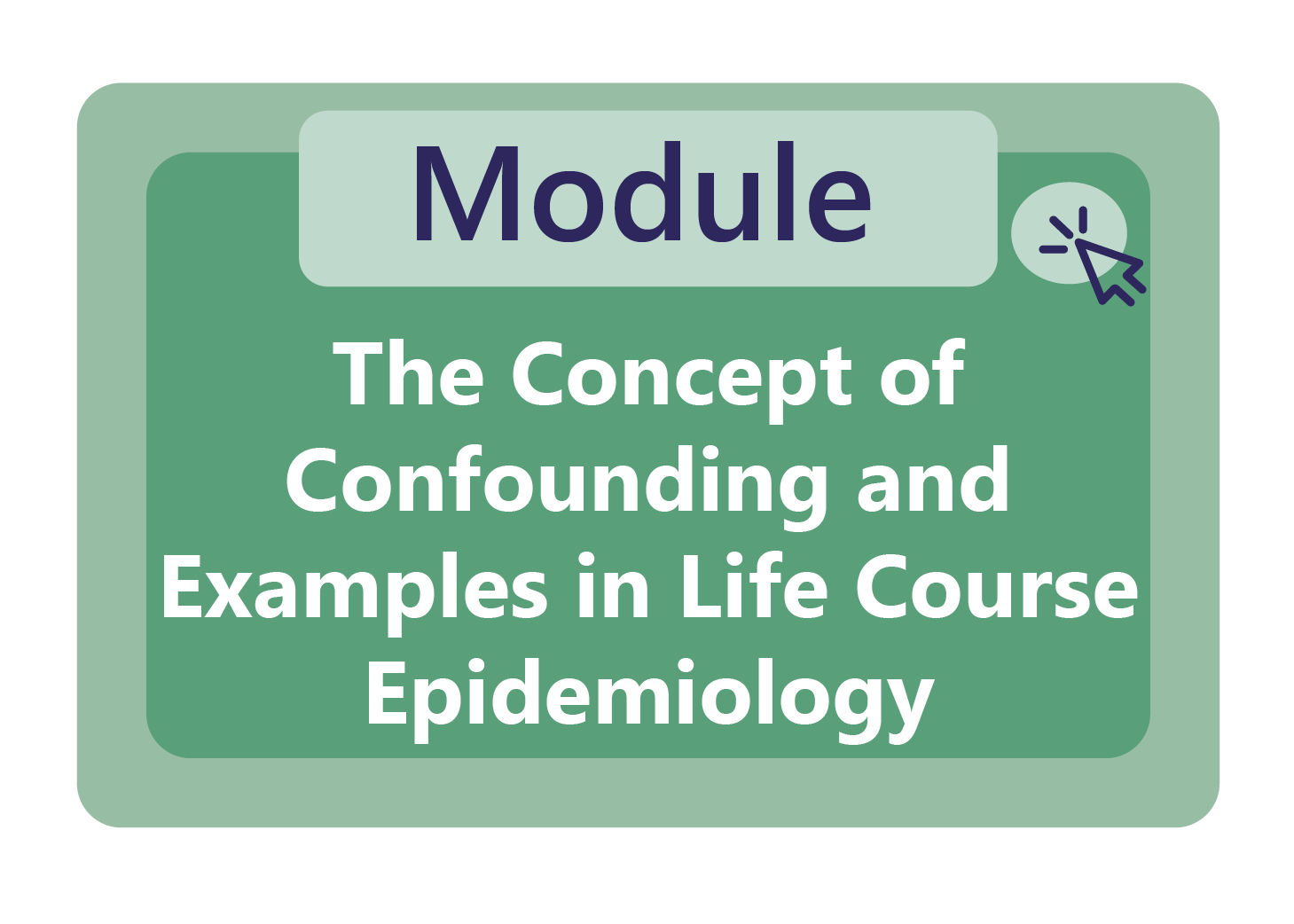Welcome to the Focus Module
"The Concept of Confounding and Examples in Life Course Epidemiology"
![]()
Created as a part of the EU funded LifeCycle Project
Introduction
Epidemiology is the study of the distribution, patterns and determinants of health and disease conditions in defined populations. Choosing the appropriate study design is essential to successfully answering your research question. In observational studies, where the exposure is not assigned randomly by a researcher, bias due to confounding is the main threat to a valid estimate of an effect. In this module, several descriptive, associational and experimental epidemiological study designs are described in detail. The concept of confounding and, in specific, of time-varying confounding, and examples in life course epidemiology are also presented.
Course content

Free of charge

Available worldwide

Targeted to healthcare professionals and researchers
Certificate of Completion

Multiple-choice test must be successfully passed

All elements in each unit must be marked complete



